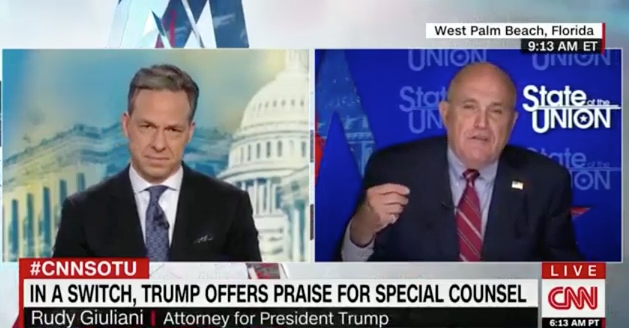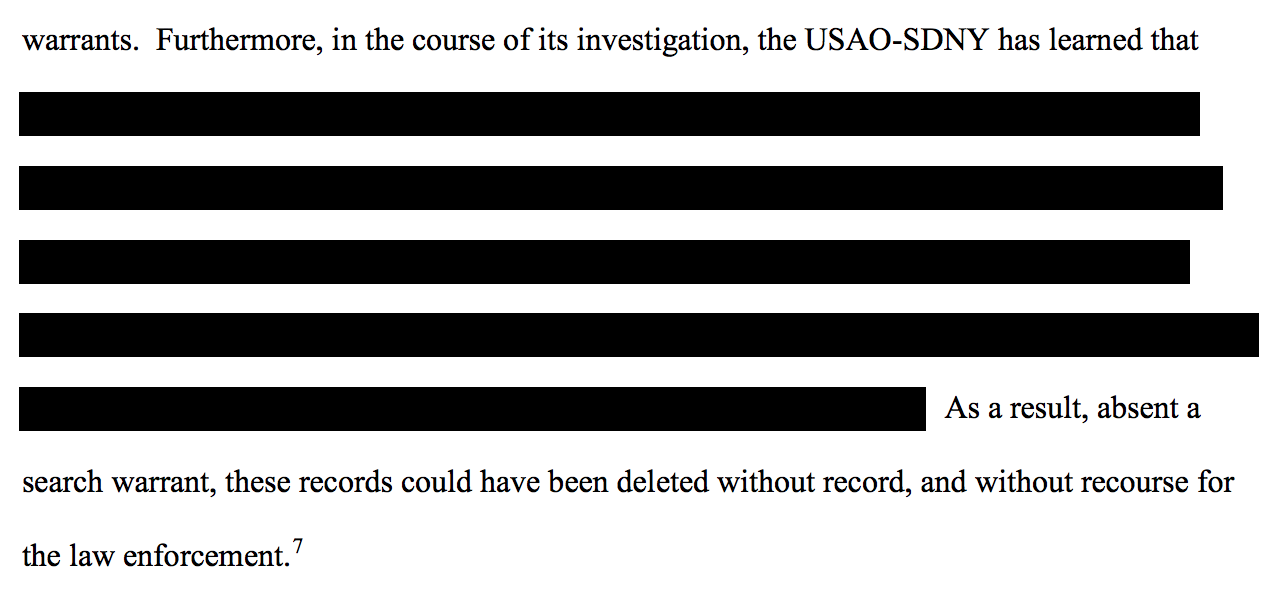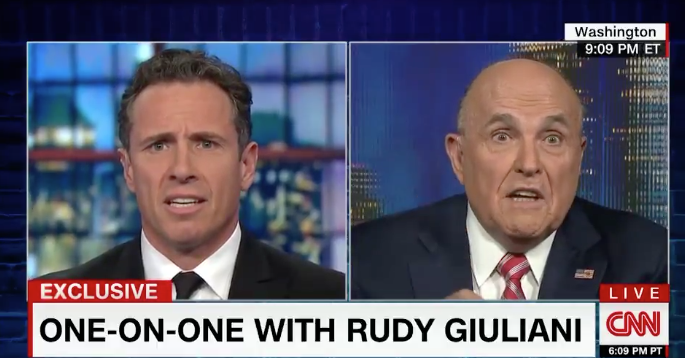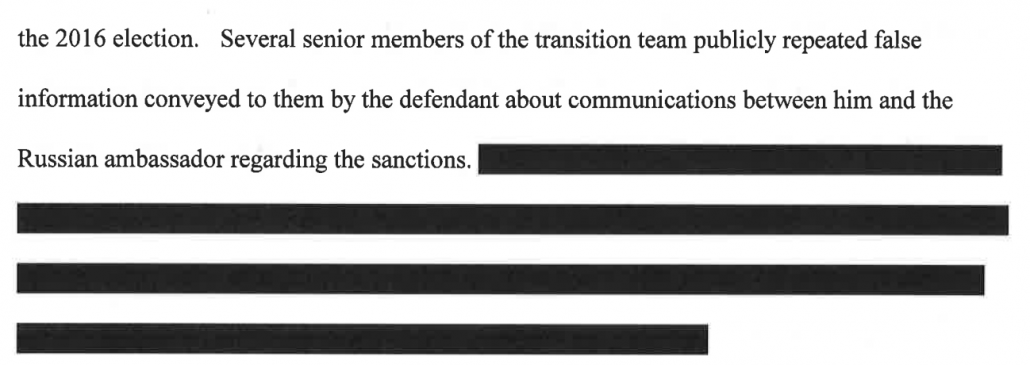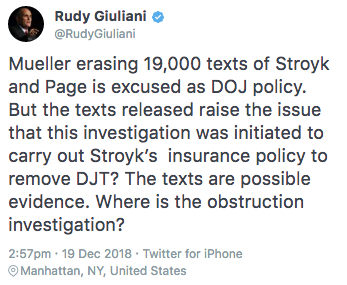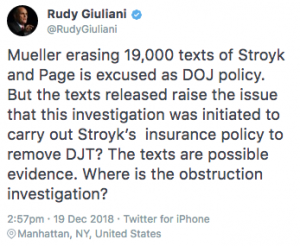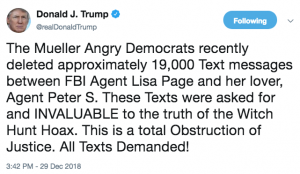Art of the Get-Screwed-in-Your-Russian-Quid-Pro-Quo Deal
Donald J. Trump, self-proclaimed Master of the Deal, just got his ass handed to him in a high stakes nuclear negotiation by Kim Jong-Un, at a time when Trump had the full power of the United States and hundreds of experts available to help him.
And yet Russian conspiracy denialists believe that any conspiracy between said deal-maker and Vladimir Putin must show evidence that Trump came away with a big win over anything but the 2016 election. They believe this, even though Trump made any such deal at a time when he was desperate to avoid a humiliating loss, relying on negotiators like his feckless son Don Jr, his attention-craving personal lawyer Michael Cohen, and his financially exposed campaign manager Paul Manafort.
That’s what I learned last night when I walked Aaron Maté through the process of first claiming the Trump Tower deal went nowhere because Cohen and Felix Sater disagreed in December 2015, then admitting that Cohen and Sater were still at it in May and June 2016. By the end, Maté was dismissing Rudy Giuliani’s admission that the deal went through the election (which is itself a limited hangout designed to hide that a Trump Tower deal was pursued in two different forms after the election, as well as abundant evidence that other financial payoffs were dangled if not made) by pointing to Dmitry Peskov’s stories, which have changed right along with Michael Cohen’s evolving story.
Because there’s no shiny tower in Moscow with Trump’s name on it, Maté appears to believe, it is proof that when Don Jr took a meeting in June 2016 at which he (according to the sworn testimony of four people who attended) committed to revisit Magnitsky sanctions if his dad got elected, the possibility of a $300 million payoff didn’t factor in to Junior’s willingness to sign away American policy considerations on behalf of his father.
That’s not how criminal conspiracy law works.
If you sign up for a deal and take steps to make good on it — as Don Jr did on June 9, 2016 and Paul Manafort appears to have done on August 2, 2016 and Mike Flynn appears to have done, on Trump’s behalf, on December 29, 2016 — then it doesn’t matter if the partner to that deal fucks you over later in the process. And, after all, the Russians did continue to supply Trump with a steady supply of dirt on Hillary Clinton all through the election. They got Trump elected, or at least did what they could to help, even if that payoff wasn’t the one Trump was most interested in.
Do you think Oleg Deripaska, a key player in both the deal-making and likely in the cover-up of it, gives a shit if Paul Manafort — who had screwed Deripaska over years earlier — had his life ruined as part of the process of compromising a President and getting sanctions relief? My suspicion is we’ll learn that Deripaska actually magnified Manafort’s hurt, once he had gotten him to compromise himself and the campaign.
Do you think Putin really cares whether Trump — to say nothing of the United States — benefits from the stupid choices Trump made during the election? Putin — a far better “deal” maker than Trump — got a win-win either way: Either Trump succeeded in compromising America’s rule of law in an effort to squelch any investigation into what happened, robbing the United States of the claim to idealism that so irks the master kleptocrat, Putin, or Trump would spend his Administration desperately trying to find a way out, all the while Putin connives Trump into dismantling the alliances that keep Russia in check.
And, too, Putin’s election year operation exacerbated the polarization between Democrats and Republicans such that most Republicans and a goodly number of Democrats have been unable to step back and say, holy shit, this country got attacked and we need to come together to do something about it. Trump’s win got Republicans to fear Trump’s base so much that they care more about those fevered hordes than doing what is right for this country. And Democrats rightly want to punish Trump for cheating, but haven’t thought about what a least-damaging off-ramp for that cheater might look like.
Putin doesn’t care if Trump benefits from all this — though he is happy to keep toying with Trump like a cat plays before he eviscerates his mouse. He cares about whether he and his cronies win. And there are multiple ways for him to get a win out of this, whether or not Trump manages to eke out any kind of real payoff past the election.
And let’s be honest, Putin isn’t the only one playing this game. Certainly, Mohammed bin Salman feels the same way, even if his record of ruthless dealmaking is shorter and sloppier than Putin’s. The truth is that Donald Trump and Jared Kushner are easy marks for a whole range of skilled operators willing to stroke their egos and dangle loot, and over and over again they’ve let themselves be bested in foreign policy negotiations, to the detriment of the interests of the United States. That they are so bad at deal making in no way disproves their culpability.
There is no Trump Tower in Moscow. But there never had to be. All that was needed was the promise of a ridiculously lucrative narcissism-stroking deal for the Trump family to agree to shit that would hurt this country. And all the evidence suggests that they did, and continue to do so.
As I disclosed last July, I provided information to the FBI on issues related to the Mueller investigation, so I’m going to include disclosure statements on Mueller investigation posts from here on out. I will include the disclosure whether or not the stuff I shared with the FBI pertains to the subject of the post.



